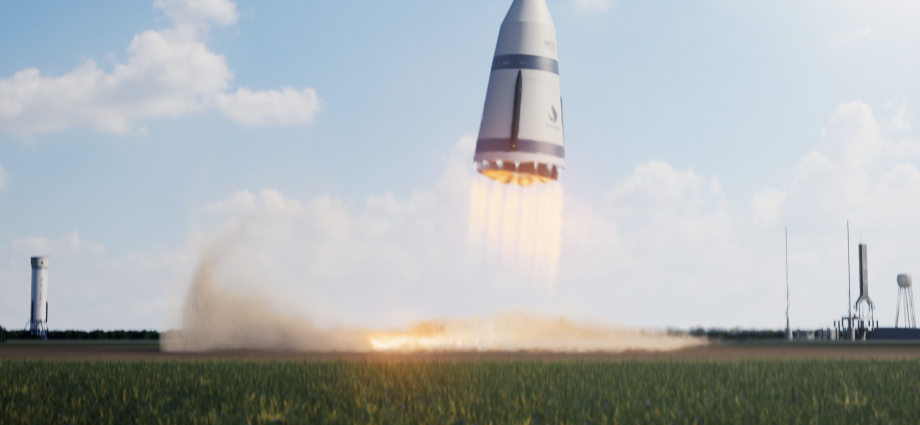Stoke Space made an announcement on Thursday that it successfully secured $100 million in funding, marking a significant step forward in the Kent, Washington-based company’s pursuit of developing a new generation of fully reusable rockets with the goal of reaching orbit by 2025.
CEO Andy Lapsa expressed his enthusiasm in a press release, stating, “This latest funding round stands as a resounding vote of confidence in our team and the substantial progress we’ve achieved. With this infusion of capital, we are poised to intensify our efforts on the development of our reusable first stage.”
This funding round comes shortly after the company’s triumphant demonstration of a successful test flight for its “Hopper” experimental rocket vehicle, which showcased a range of cutting-edge technologies, including its hydrogen/oxygen engine, heat shield, thrust control, avionics, software, and ground systems.
Stoke Space intends to allocate this new capital towards the construction of its first-stage rocket engine and structure, as well as the development of the orbital version of its reusable second stage. Additionally, funds will be directed towards enhancing and expanding Cape Canaveral Space Force Station’s Launch Complex 14. Earlier in the year, Stoke Space received approval to take over the historic site of John Glenn’s pioneering Mercury launch in 1962.
The company remains on track to conduct its first orbital test flight in 2025, as part of its overarching mission to create a fully reusable launch system that operates with a level of frequency similar to aircraft for transporting payloads to, from, and through space. Stoke Space has already initiated discussions with potential customers as part of its commercialization efforts.
Stoke Space’s launch system concept draws comparisons to SpaceX’s larger two-stage Starship system designed for missions beyond Earth orbit.
In addition to securing the funding, Stoke Space unveiled the name of its rocket: “Nova.” This name is inspired by the astronomical phenomenon where new stars emerge from the remnants of older ones. It’s worth noting that Stoke Space’s rocket had previously garnered a variety of nicknames, including “The Rocket That Shall Not Be Named” and “Voldemort.”
With approximately 90 employees, Stoke Space has significantly expanded from the 29-person team it had when it raised $65 million in funding in 2021, led by Bill Gates’ Breakthrough Energy Ventures. The company’s workforce is primarily based in Washington and includes engineers with experience at Blue Origin, SpaceX, Spaceflight Inc., and other major aerospace firms. Stoke Space continues to grow its staff.
The company’s rapid progress has also been fueled by a $9.1 million seed funding round and research grants from NASA, the National Science Foundation, and the U.S. Air Force.
Founded in 2019 by Lapsa, a former member of Jeff Bezos’ Blue Origin team, and Tom Feldman, who previously worked at Blue Origin after interning at SpaceX, Stoke Space was part of the Y Combinator Winter 2021 cohort.
The company operates a 75-acre rocket testing facility in Moses Lake, Washington, and has a 21,000-square-foot engineering and manufacturing headquarters in Kent, Washington, located near Blue Origin’s headquarters.
The Series B funding round was led by Industrious Ventures, with participation from the University of Michigan, Sparta Group, Long Journey, and other contributors. Existing investors, including Breakthrough Energy, Y Combinator, Point72 Ventures, NFX, MaC Ventures, Toyota Ventures, and In-Q-Tel, also joined the round, bringing Stoke Space’s total funding raised to date to $175 million.

